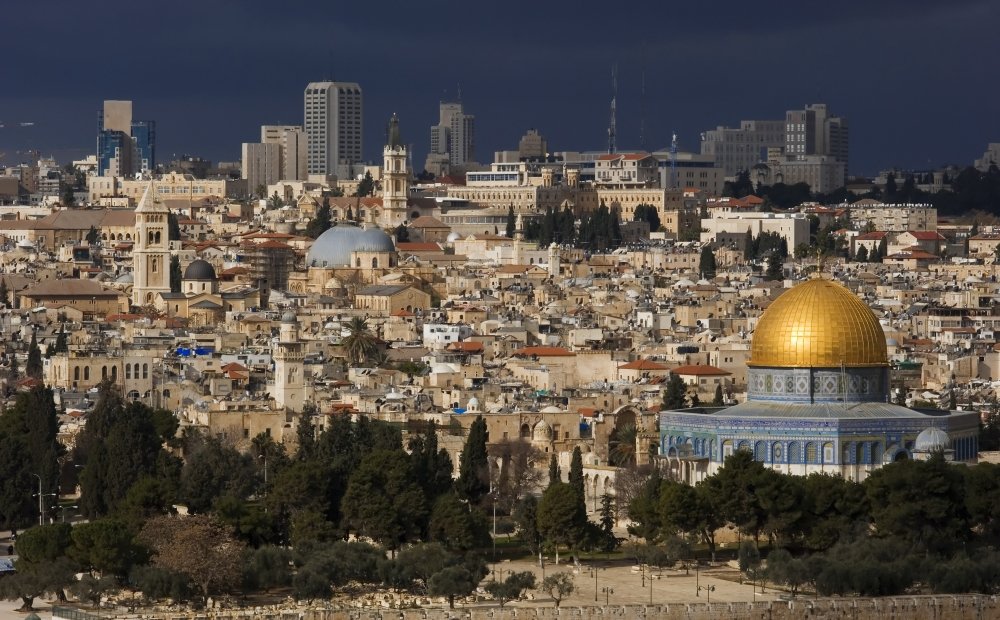Ground Truth Briefing | Today’s Bleak Prospects for Israeli-Palestinian Peace: A Conversation with Saeb Erekat and Gilead Sher

In this Ground Truth Briefing, two veteran negotiators for the Israelis and the Palestinians, Gilead Sher and Saeb Erekat, discuss the opening of the U.S. Embassy in Jerusalem, the confrontation along the Israel-Gaza border, and prospects for reviving a seemingly dead peace process.
Selected Quotes
Aaron David Miller
“When we failed in diplomacy, particularly in the pursuit of Arab-Israeli negotiations, it was almost always because, let’s forget the Israelis and Palestinians for a moment, the Americans chose to see the world the way they wanted it to be, rather than how it really was.”
“Without a monopoly over the organized forces of violence within a society, there is no way that statehood can become a reality, because you would lack a credibility with your own constituents and with your neighbors.”
“South Africa as difficult a situation it now faces, for many difficult political and economic reasons, no one ever believed that the South African situation, that apartheid would be resolved without a catastrophe. It was resolved because of leadership. That to me still remains the key. Leaders on the Israeli and Palestinian and American side who are masters of their political houses, not prisoners of their ideologies or their politics, but realists and pragmatists who actually are committed to doing this.”
Saeb Erekat:
“The past events - This is the result of the absence of peace. This is the result of Palestinians and Israelis unable to make a deal, which is doable, we don’t need to reinvent the wheel. We all know it’s going to be a two-state solution. The state of Palestine with East Jerusalem as its capital to live side-by-side in peace and security with the state of Israel on the 1967 line.”
“We have recognized Israel, our recognition stands. So far, look at the massacre, we lost 64 Palestinians in one day and I don’t hear any condemnation coming from Israel. I don’t hear anybody expressing sorrow for these human lives, or from the United States. On the contrary, the law on morality has never reached this level.”
“People have a right to worship, not only in Jerusalem, but anywhere they think they have holy sites, in Hebron, Jericho, Haifa, wherever. Religious freedom must be the basic thing for all in this region.”
Gilead Sher:
“Please note, that Israel did not face a peaceful resistance, it was not a popular peaceful protest, but a cynical abuse of an incited frustrated population led by Hamas fighters, terrorists, and activists. These were not demonstrators, these were attackers, controlled by Hamas, paid for by Hamas, organized by Hamas, Iran’s proxy.”
“I think this is the time for de-escalation for self-examination on all sides, we have two million Gazans who live in unacceptable humanitarian conditions. They need to be provided with medical assistance and treatment alleviations of all restrictions possible without making risks in security. We have to provide humanitarian aid and we have to get a ceasefire and here I believe that Egypt is a key.”
“There’s no other way but a two-state solution. We have to divide the land between the Jordan River and the Mediterranean Sea, the conflict can be resolved.”
Introduction

Moderator

Panelists
Hosted By

Middle East Program
The Wilson Center’s Middle East Program serves as a crucial resource for the policymaking community and beyond, providing analyses and research that helps inform US foreign policymaking, stimulates public debate, and expands knowledge about issues in the wider Middle East and North Africa (MENA) region. Read more
